OpenAI's Latest Release: 70+ ChatGPT Plugins including Internet access
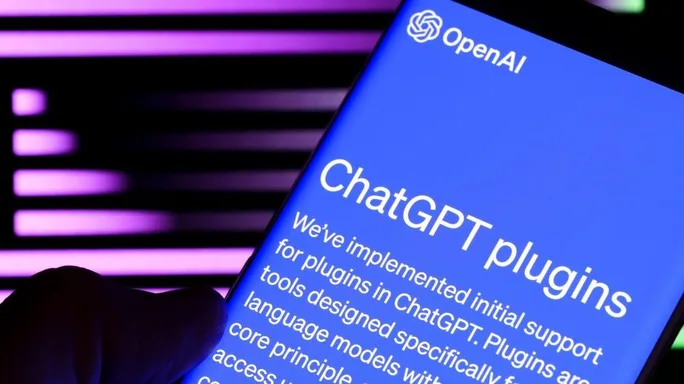
OpenAI releases web browsing and over 70 ChatGPT plugins
On May 13, 2023, OpenAI announced in a tweet that they are rolling out web browsing and more than 70 third-party plugins to all ChatGPT Plus users over the next week. The creation of web browsing (beta) and plugin features marks a significant ChatGPT advancement.
ChatGPT's plugin feature, heretofore only accessible to a select group of users on the waitlist, is now available to all ChatGPT Plus users. Furthermore, users of ChatGPT Plus are now able to access a wide array of information that is updated in real-time. Additionally, they can leverage a diverse range of functionalities provided by plugins developed by various third parties.
OpenAI Announces ChatGPT Plus's Web Browsing and Plugin Features
Expand Your ChatGPT Experience with New Plugins
More than 70 Third-Party ChatGPT Plugins
Plugins are automatically used by ChatGPT
Limitations
For Developers
ChatGPT Is Online Now
Instructions to Activate ChatGPT's New Beta Web Browsing and Plugins Features
OpenAI's Response to Google's Bard and Microsoft's Bing Chat
OpenAI Announces ChatGPT Plus's Web Browsing and Plugin Features
March marked the inception of OpenAI's development of ChatGPT plugins. Initially, only a select group had access to these plugins. The first set of ChatGPT plugins was created and developed by various third parties, such as Speak, Zapier, Ebetaxpedia, Shopify, Wolfram, FiscalNote, Slack, Milo, Instacart, OpenTable, Kayak, and Klarna. These plugins are diverse, providing users with services ranging from tracking live sports scores to booking international flights. OpenAI's strategy is to gradually introduce the plugin for real-world utility assessments.
At the end of March, Open AI said that the plugin feature was still in its alpha phase, in which a small group of users is given access to the new feature for testing and feedback before rolling it out on a large scale. During its beta phase, the updated feature will be extended to ChatGPT Plus members who have opted for beta testing.
After days of anticipation, Open AI announced the latest release on the 10th of May, including the beta rollout of the web browser and over 70 plugins for ChatGPT Plus users. This release is expected to bring countless possibilities to your conversation.
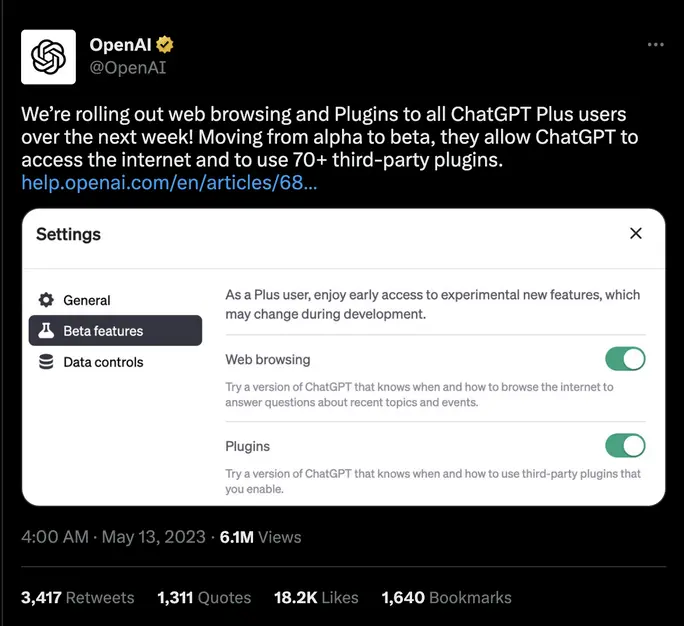
OpenAI announced in a tweet
Expand Your ChatGPT Experience with New Plugins
After months of teasing about internet-connected plugins, OpenAI has recently officially put its plugins into operation, allowing ChatGPT Plus users to choose to use the new beta feature. Specifically designed for ChatGPT Plus users, these plugins offer an array of features to enhance the user experience and are expected to dramatically expand ChatGPT's capabilities.
More than 70 Third-Party ChatGPT Plugins
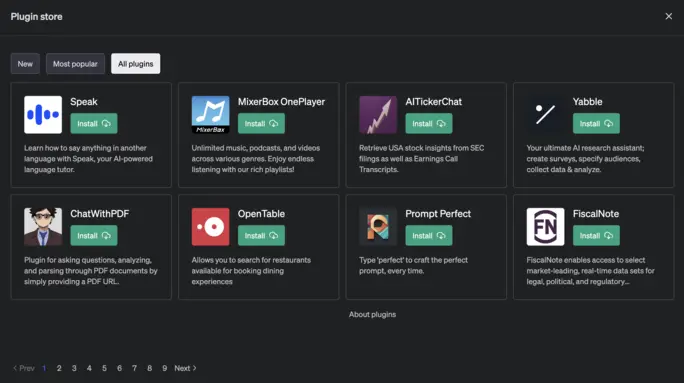
70 + Third-Party ChatGPT Plugins are available in Plugin store
The ChatGPT plugins, currently in their beta phase, will be available to all ChatGPT Plus users within this week. At present, these plugins are exclusively available to subscribers of ChatGPT Plus, necessitating activation within the user settings under the "Beta Features" option. The Plus package costs $20 per month and allows users to use OpenAI's Chat GPT-4 model, a major improvement over ChatGPT-3. With 70 third-party plugins, users can use GPT-4 for various activities, including marketing, weather forecasting, entertainment, restaurant booking, job searches, prompt generation, tutoring, and more.
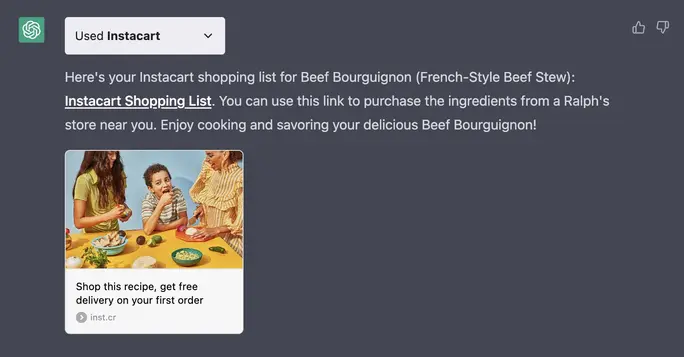
Instacart plugin
For instance, one plugin, “Instacart”, allows users to shop directly from food and recipe-related conversations, creating Instacart orders based on suggested meal responses and delivering the necessary ingredients to their door.
Plugins are automatically used by ChatGPT
Upon subscribing to ChatGPT Plus, plugins are automatically activated and can be found under the "Beta Features" section of the user's settings. According to OpenAI, ChatGPT is equipped with the intelligence to discern when and how to scour the web for current topics and events, as well as access activated plugins.
Limitations
While users are currently allowed to install an unlimited number of plugins, they are constrained to using only three plugins concurrently in each chat session. To achieve the best results, it is recommended to consider the tasks you aim to accomplish with ChatGPT, then select the three most suitable tasks from among the 70+ plugins. These plugins are applicable to a wide range of industries and business projects, including shopping, real estate, stocks, travel, and cuisine.
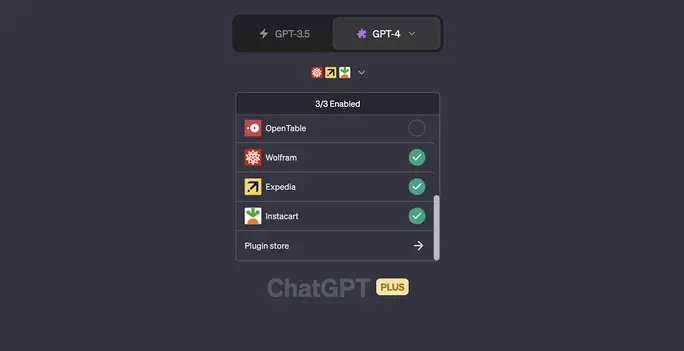
Only use three plugins concurrently in each chat session
For Developers
Developers that want to create ChatGPT plugins can sign up for the plugin waitlist. Upon approval, OpenAI documentation will provide guidance through the process of creating a plugin similar to those from Instacart, OpenTable, Expedia, Kayak, and other brands.
ChatGPT Is Online Now
One of the key limitations of ChatGPT has been the limitation of data beyond 2021. This is in contrast to other AI tools such as Microsoft Bing Chat and Google Bard, which allow users to connect to the Internet for information retrieval, data consultation, and web resource exploration. As a result, ChatGPT could be perceived as lagging behind its competitors.
Nevertheless, OpenAI seems to have recognized the growing demand from millions of ChatGPT users for Internet connectivity. Therefore, OpenAI has finally granted Internet access to ChatGPT. This feature allows ChatGPT to access real-time data, giving it a competitive edge in the AI market. The introduction of the browsing web feature has eliminated its previous data limitations and brought it on par with AI tools like Microsoft Bing Chat and Google Bard.
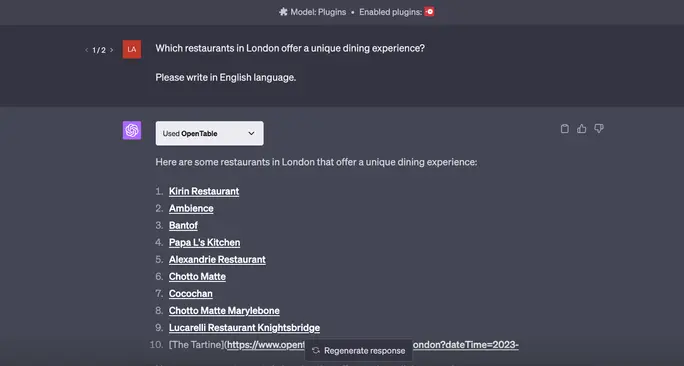
List of restaurant names that contain hyperlinks
For example, when I asked ChatGPT which restaurants in London offer a unique dining experience, the chatbot responded with a list of restaurant names that contain hyperlinks to web pages.
The web browsing feature brings ChatGPT closer to the functionality of a human assistant, capable of scouring the internet to retrieve and synthesize information on demand. This is a significant advancement over the previous version, which could only provide information based on its training data and didn't have the ability to pull in real-time data from the web.
Instructions to Activate ChatGPT's New Beta Web Browsing and Plugins Features
According to the latest update from Open AI, the new experimental features, ChatGPT plugins and web browsing, can be accessed via the new Beta Features section in your settings, which will be rolled out to all Plus users within this week. The incorporation of these enhancements represents a significant advancement in the software's capabilities, facilitating users' integration of web-connected search operations and plugin installations.
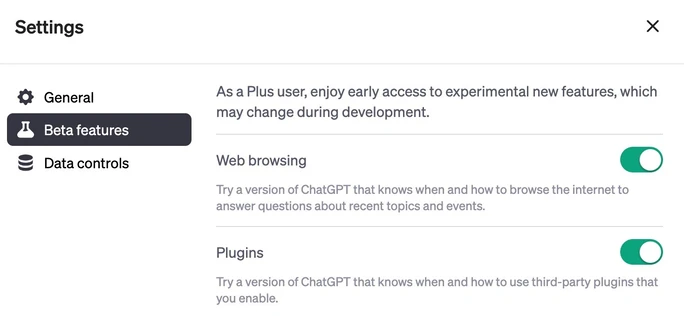
Enable the plugins in the ChatGPT settings
Upon the deployment of the beta panel to users' accounts, you will have the opportunity to explore two new functionalities:
- Web browsing: This feature allows users to engage with a new version of ChatGPT equipped with the capability to browse the internet. The intent is to provide responses to queries pertaining to real-time topics and events.
- Plugins: This feature brings to users a new version of ChatGPT that is proficient in the utilization of third-party plugins that the user has enabled.
To employ third-party plugins, users should follow the following instructions:
- Visit the website chat.openai.com
- Choose “Plugins” from the model switcher
- In the “Plugins” dropdown, select “Plugin Store” to install and enable new plugins
To activate beta features, users should undertake the following steps:
- Click on “Profile & Settings”
- Select “Beta features”
- Toggle on the desired features for the trial
OpenAI's Response to Google's Bard and Microsoft's Bing Chat
The recent release of OpenAI's ChatGPT update comes on the heels of Google's global expansion of its Bard and Microsoft's announcement of the next generation of Bing AI features, suggesting a robust and highly competitive chatbot platform race amongst these tech giants. The launch of the ChatGPT plugin and the browsing web features appear to be Open AI's response to the two tech giants, Microsoft and Google.
The introduction of plugins and a web browsing feature has considerably expanded ChatGPT's capabilities. Now, not only can ChatGPT generate human-like text, but it can also interact with the internet, fetching real-time information, which is a giant leap forward.
AI is already changing the way we live, work, and interact digitally, and it seems we are just at the beginning of this journey. One thing is for sure: we can expect even more revolutionary advancements in AI as OpenAI, Google, Microsoft, and other tech leaders continue to push the boundaries of what's possible.
